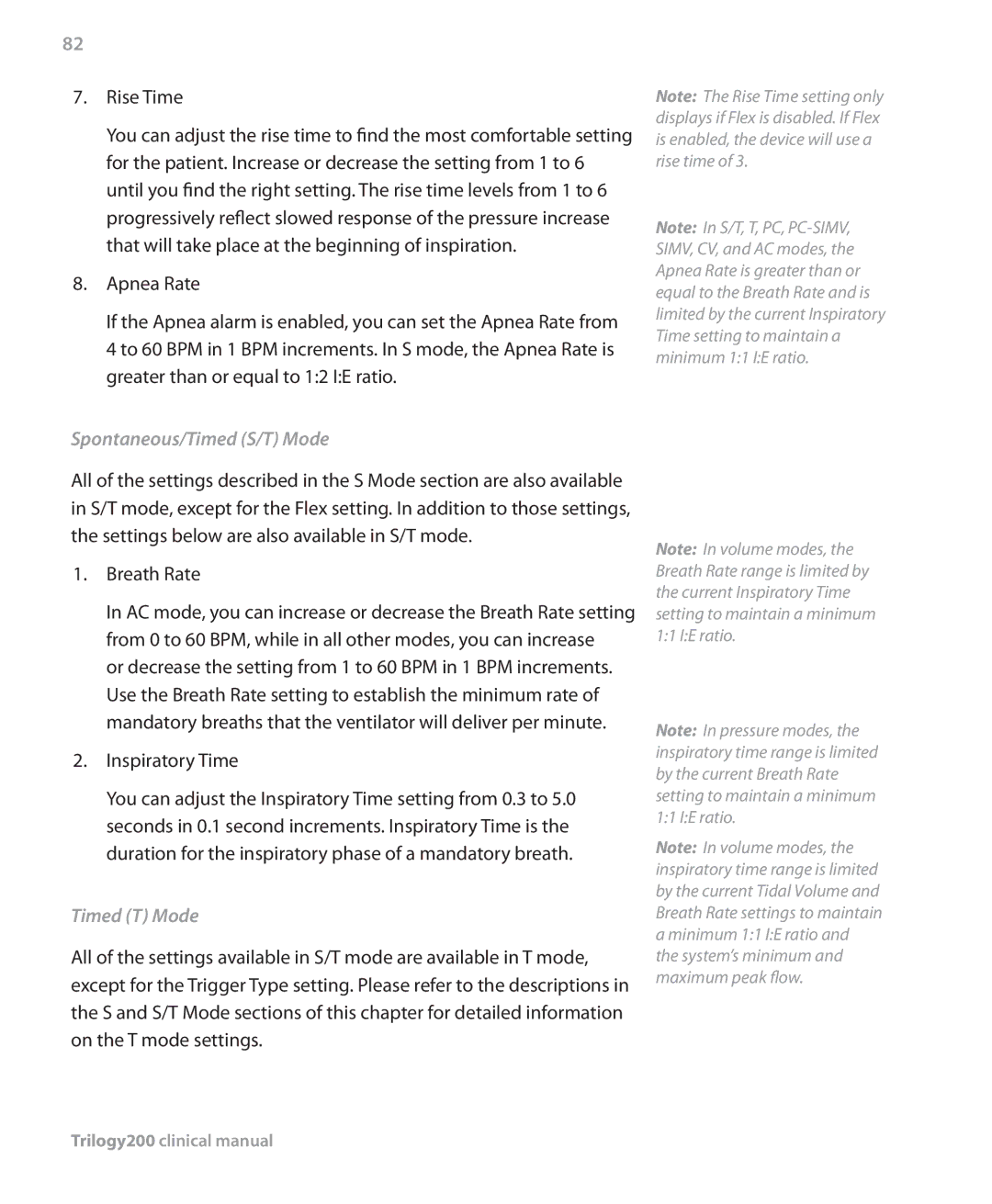82
7. Rise Time
You can adjust the rise time to find the most comfortable setting for the patient. Increase or decrease the setting from 1 to 6 until you find the right setting. The rise time levels from 1 to 6 progressively reflect slowed response of the pressure increase that will take place at the beginning of inspiration.
8.Apnea Rate
If the Apnea alarm is enabled, you can set the Apnea Rate from 4 to 60 BPM in 1 BPM increments. In S mode, the Apnea Rate is greater than or equal to 1:2 I:E ratio.
Spontaneous/Timed (S/T) Mode
All of the settings described in the S Mode section are also available in S/T mode, except for the Flex setting. In addition to those settings, the settings below are also available in S/T mode.
1.Breath Rate
In AC mode, you can increase or decrease the Breath Rate setting from 0 to 60 BPM, while in all other modes, you can increase
or decrease the setting from 1 to 60 BPM in 1 BPM increments. Use the Breath Rate setting to establish the minimum rate of mandatory breaths that the ventilator will deliver per minute.
2.Inspiratory Time
You can adjust the Inspiratory Time setting from 0.3 to 5.0 seconds in 0.1 second increments. Inspiratory Time is the duration for the inspiratory phase of a mandatory breath.
Timed (T) Mode
All of the settings available in S/T mode are available in T mode, except for the Trigger Type setting. Please refer to the descriptions in the S and S/T Mode sections of this chapter for detailed information on the T mode settings.
Note: The Rise Time setting only displays if Flex is disabled. If Flex is enabled, the device will use a rise time of 3.
Note: In S/T, T, PC,
Note: In volume modes, the Breath Rate range is limited by the current Inspiratory Time setting to maintain a minimum 1:1 I:E ratio.
Note: In pressure modes, the inspiratory time range is limited by the current Breath Rate setting to maintain a minimum 1:1 I:E ratio.
Note: In volume modes, the inspiratory time range is limited by the current Tidal Volume and Breath Rate settings to maintain a minimum 1:1 I:E ratio and the system’s minimum and maximum peak flow.
